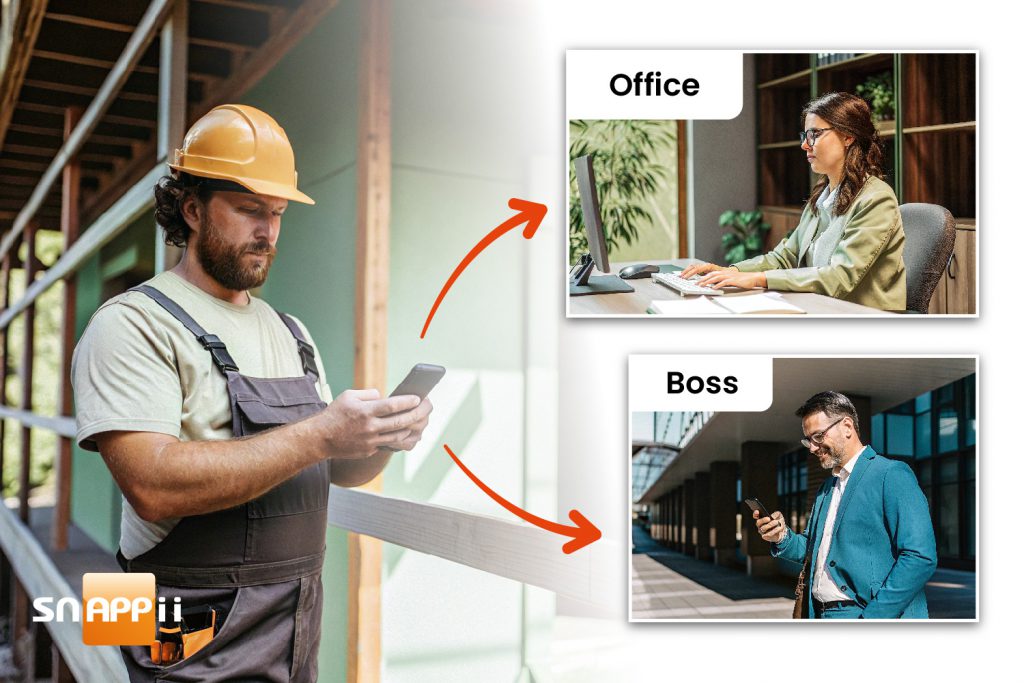In today’s fast-paced business world, quick and accurate reporting can make all the difference in decision-making. Traditional methods of compiling and sharing reports are often time-consuming, manual, and prone to error. This is where mobile apps come into play. With the power of mobile technology, businesses can significantly streamline their reporting processes, improving efficiency and enhancing productivity. Here’s how mobile apps can help speed up reporting in your organization.

1. Real-Time Data Collection
One of the biggest advantages of using mobile apps for reporting is the ability to collect data in real time. Whether it’s sales data, customer feedback, or fieldwork progress, mobile apps enable employees to record and upload information as it happens. This eliminates the need to wait for daily or weekly updates and ensures that reports are based on the most current data.
For example, sales teams can log their daily sales figures or customer interactions directly into the app while on the go. This reduces the time spent manually updating spreadsheets or waiting for the data to be entered at the end of the day.
2. Automatic Data Syncing
Mobile apps are designed to sync data across devices instantly. Whether you’re on-site, in the field, or in the office, information entered into the app is automatically updated in real time. This eliminates the lag time of waiting for employees to send in their reports or for data to be manually entered into a central system.
Cloud-based mobile apps also allow for smooth integration with existing business systems like CRMs, accounting software, or project management tools. This way, the data entered on the app can be directly transferred to these systems, eliminating the need for duplicate work.
3. Customizable Reporting Templates
Creating customized reporting templates within mobile apps is another effective way to speed up the reporting process. Instead of starting from scratch every time, employees can use pre-built templates that suit their specific reporting needs. This reduces the amount of time spent formatting and structuring reports.
Most mobile apps also allow you to create templates with predefined fields that make data entry faster and more consistent. By minimizing the time spent on organizing data, employees can focus more on analyzing and interpreting the information.
4. Voice-to-Text and Image Integration
For those who need to capture detailed information but don’t have time to type, many mobile apps come with voice-to-text functionality. Sales representatives, field agents, or remote workers can simply speak into their phones, and the app will convert the speech into written text in the report. This speeds up the process significantly, especially in high-pressure or time-sensitive situations.
Additionally, mobile apps allow for easy integration of photos and documents. Employees can snap pictures of receipts, invoices, or site progress, attach them to their reports, and share them instantly. This eliminates the need to manually scan or upload physical documents later.
5. Collaborative Reporting Features
Collaboration is key in many organizations, and mobile apps are built to support team-based reporting. Multiple users can access the same report, provide real-time updates, and leave comments, all within the app. This makes it easier to keep everyone on the same page, and ensures that reports reflect the most up-to-date information.

Furthermore, apps often allow for customizable permission settings, meaning that managers can assign specific roles to team members—ensuring that only relevant stakeholders have access to certain sections of the report. This streamlines the reporting process, allowing for smoother collaboration and reducing the back-and-forth associated with manually distributing files.
6. Automated Report Generation
Once data has been collected and organized within the app, many mobile reporting apps offer automated report generation. The app can pull in relevant data and automatically generate formatted reports, ready for sharing with stakeholders. This minimizes the time spent on compiling reports manually, while also reducing the chance of human error.
Automated reporting can also be scheduled, meaning reports are generated at regular intervals (daily, weekly, monthly) without any intervention. This feature is especially useful for routine tasks like sales updates, financial summaries, or project progress reports.
7. Dashboards and Data Visualization
Mobile apps often come with built-in dashboards and data visualization tools that allow employees to view and understand their data at a glance. Instead of combing through piles of data or waiting for someone to manually create charts, reports can be quickly generated using visual elements like graphs, pie charts, and progress bars.
These visual representations of data can be shared in real-time, helping decision-makers grasp insights instantly, without having to interpret complex raw data. Additionally, these dashboards can be customized to highlight the key performance indicators (KPIs) most relevant to your business, ensuring that everyone is focused on the right metrics.
8. Enhanced Data Security
Speeding up the reporting process doesn’t mean compromising on security. Mobile apps that are specifically designed for reporting typically come with strong encryption, password protection, and multi-factor authentication to keep your data safe. This ensures that sensitive business information remains secure, even when being accessed remotely.
Furthermore, many apps allow you to set specific permissions for different team members, ensuring that only authorized users can access, edit, or share reports. This adds an extra layer of security to your reporting process while maintaining its efficiency.
9. Offline Capabilities
Not all locations have reliable internet connectivity, especially for employees who work in remote areas or on the go. Fortunately, many mobile apps offer offline capabilities, allowing users to input data and generate reports even without an internet connection. Once the device reconnects to the internet, the data will automatically sync with the central system.
This feature ensures that reporting is never delayed, regardless of the location or connectivity issues.
Conclusion
Mobile apps are revolutionizing how businesses approach reporting by providing faster, more accurate, and more collaborative solutions. By leveraging real-time data collection, automation, customizable templates, and advanced security, businesses can streamline their reporting processes and make more informed decisions in less time.
If your organization is still relying on outdated methods for reporting, consider integrating a mobile app into your workflow. The time saved can be reinvested in strategic decision-making and more productive tasks, ultimately giving your business a competitive edge.

 Login
Login

